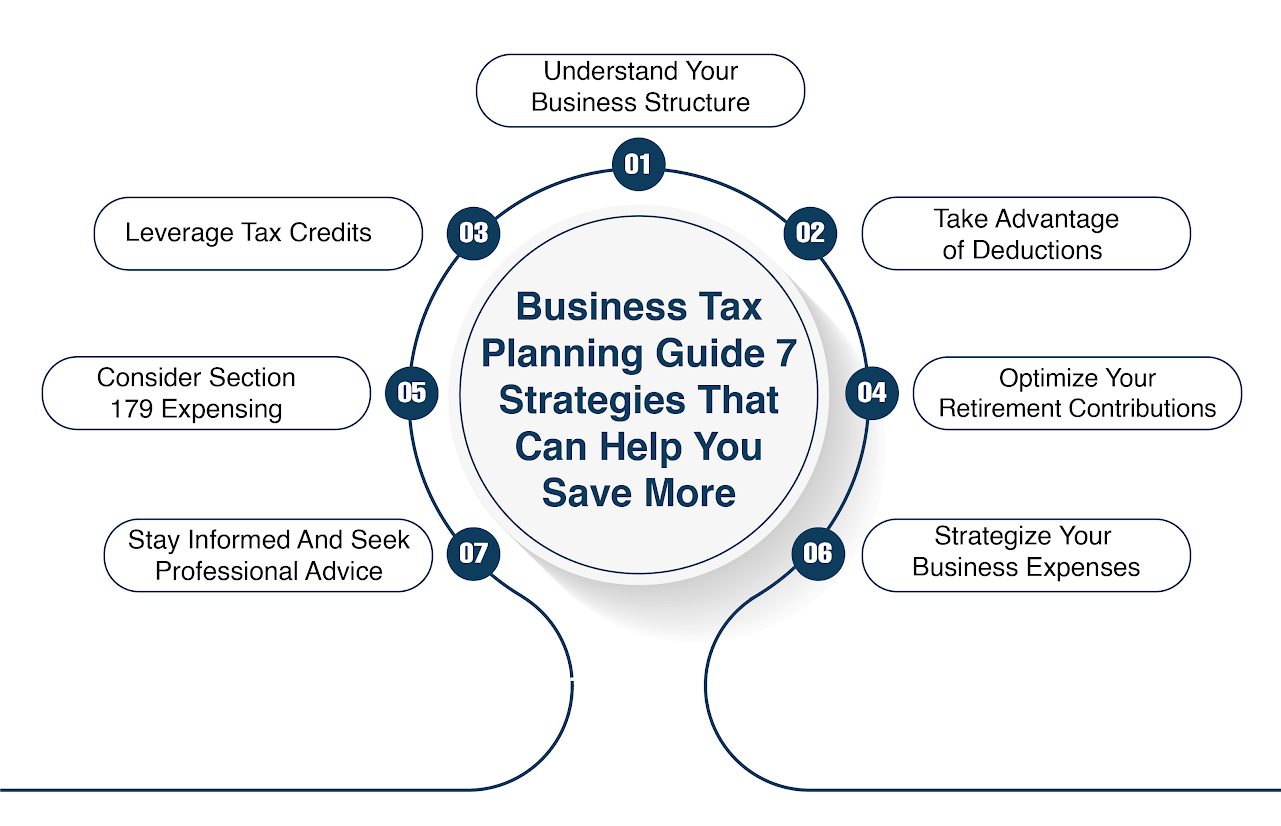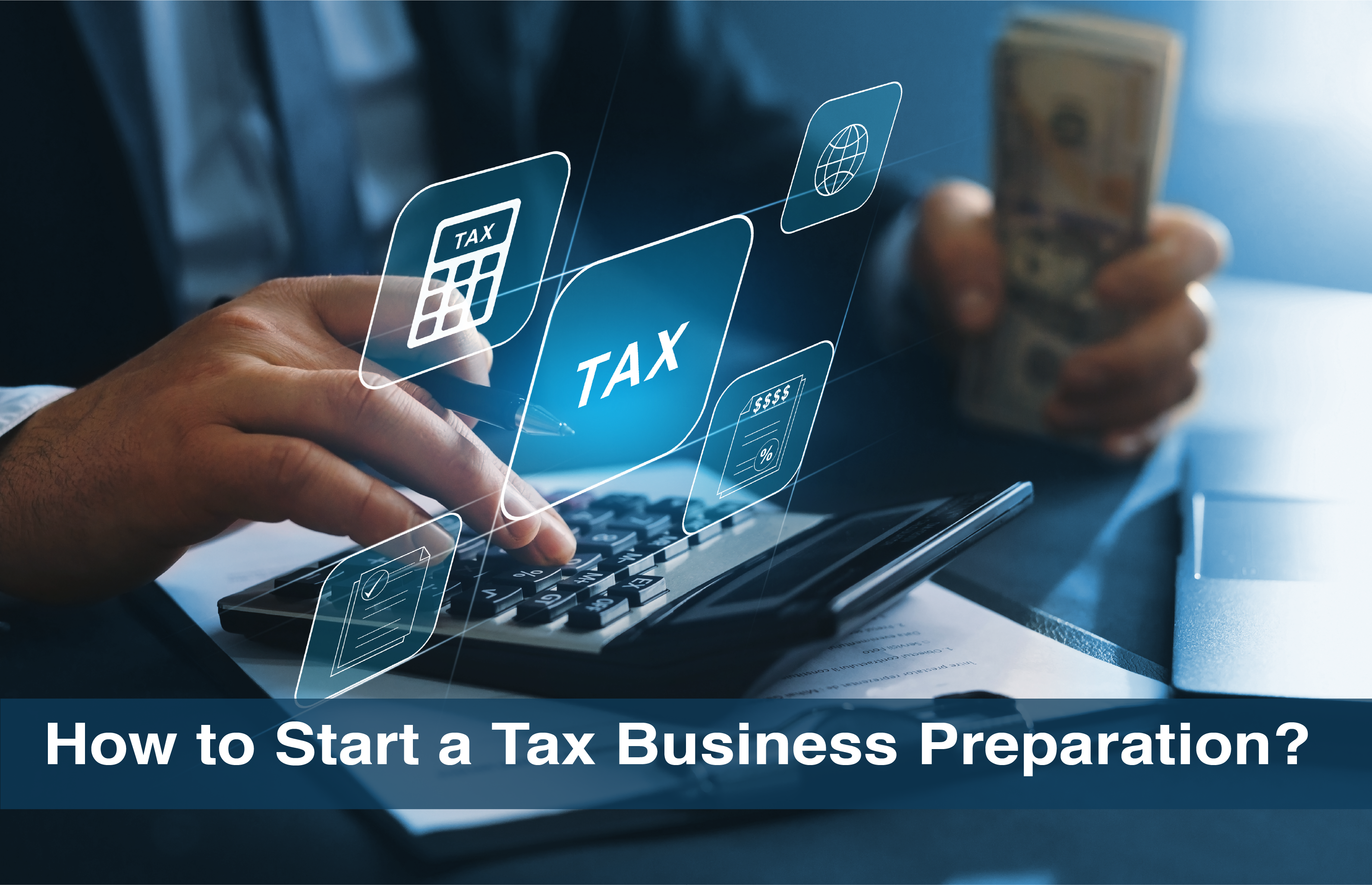To file your taxes as an LLC owner, tax gurus recommend reliable tax tips and knowledge about tax planning for small businesses. The taxes in the U.S. depend on the business type you run. IRS differs for tax compliance.
Generally, LLCs have two categories for small businesses in terms of tax liabilities.
The first one is Single-member LLCs
You The Second one is multi-member LLCs
It is imperative to observe that both small business cases are limited liability companies. So, the tax returns get prepared and filed differently. SG INC CPA—a trusted tax solution-providing firm, goes over what tax returns you need to file as an LLC owner and how to pay your current and future taxes to keep you out of trouble with the IRS.
Tax Tips You Need to Know as a New Business Owner
Deductions:
Deductions work as big chunks of tax savings. You can use tax deductions to reduce your taxes before the year-end in 2024.
Deductions are expenses in your company that yield you the net profit, so if you need anything you can pay off in December, try to pay it in December.
If you’ve got the cash flow, consider January or possibly February and pay those expenses off early. This is for tax planning for small businesses.
While you pay them off in the tax year before December 31st of this year, you can deduct those in this year and reduce your taxable income for the year.
Charitable Contributions:
The other deduction you can use is charitable contributions. So, if you have a church you want to donate to or an organization you support, make that charitable contribution this year, and you get the deduction.
Keep in mind some people confuse charitable contributions with credit. Whatever your tax rate, if you donate a hundred dollars and get taxed at 30 percent, you will get a thirty-dollar deduction off your taxes.
That’s why, as the best part of tax tips for small businesses, we advise you to opt for annexation with a charitable organization to save taxes.
Deferred Income:
The second thing our CPAs want to recommend that you do is defer income. So, if a new small business works in December, the last couple of weeks, wait to bill it until after the first of the year.
Once you bill it, then it’s invoiced, and it falls in as taxable income for next year. This implies that you will defer the income to pay taxes next year.
However, it will help you this year, especially if you think you will be in a higher tax bracket. You believe your company will be in a lower tax bracket next year.
Tax Structure:
The third thing is the tax structure. Sometimes, we would never recommend a small business do this. Still, they end up setting up as a C Corp.
We urge you not to do that because if you set yourself up as a C Corp, you get taxed at the corporation level, and when you pull your contribution or dividends from it.
Subsequently, you get taxed again. It’s double taxation. It’s still best to be an S Corp or a partnership when you do this.
Retirement Contributions (401Ks):
The fourth way to reduce your taxes is to contribute to your IRA (Individual Retirement Account).
401Ks are good at this because 401Ks defer taxes, especially at your higher tax bracket right now. These strategies make a good income for your company when you’ve got a side gig while making considerable money with another.
Thus, if you’re looking to hire a full-time CPA, look at your tax bracket. You can reduce that income now and pay for it when you retire.
Tax tips for small businesses can also be beneficial, as they are usually used when people retire. In case your tax bracket drops because you don’t have all the income you produce.
Section 179:
The last one is Section 179 for tax savings. The section enables the tax filer to spend the entire equipment purchased.
You can use the same amount in the current tax year instead of depreciating it over several years. This is particularly useful because the dollar’s value this year is more valuable than it will be next year due to inflation.
You can also take a loan to buy equipment and get the tax deduction today. Although you won’t get deductions in the future for loan repayments, you can take advantage of Section 179.
Tax tips for small businesses are also essential for you to learn the validity of the specific rule and section even if you need to make any purchases and do it this year.
How to Get the Write-offs for Small Businesses:

SG INC CPA sped out of the competitive arena of CPA consultancies. Our expert CPAs and accountants share some viable and reliable write-offs for a new small business to save you taxes. We bring these strategies into tax planning for small businesses. Write-offs are tax relaxation and waivers of taxes that you can apply to specific circumstances in your business.
You can consider some of them while analyzing tax tips for small businesses. You will learn that over 20 million LLCs are registered in the U.S. Your LLC is one of them. We here at SG INC CPA want to ensure you know the tax write-offs. With this, you can minimize your tax liability or even maximize your tax refund.
Home Office Deduction:
The first write-off SG INC CPA opens to discuss is the home office write-off. You will be amazed that the write-off is one of our favorite write-offs because a new small business can apply it almost anywhere.
Moreover, this write-off allows you to write off average personal expenses as business expenses. For instance, you can apply for the deduction if you own a dedicated room or co-working space in your apartment. Suppose it is solely reserved for the business.
Startup and Organizational Costs:
The second write-off we share as one of the small business tax tips is startup and organizational costs. When you get a breakthrough for your LLC, there’s a good possibility you had some initial investment costs in assortments like computers, office fixtures, equipment, research, and development.
The case also validates that you might have paid a consultant or a tax lawyer. You can probably have some state filing fees you need to pay. You can save up to five thousand dollars in startup expenditure in the first year you set up your business.
Cell Phone Expenses:
The third write-off is your cell phone expenses. If you’re anything like a small business, you need to do much of your business on your cell phone, more business than personal. Such an indispensable use of phones creates fuss about writing off the purchase of your cell phone.
Our small business tax tips also guide you in writing off the monthly subscriptions to that cell phone to save more taxes.
Vehicle Expenses:
The fourth write-off you may claim is the official vehicle expenses. This is a big write-off that many business owners miss or don’t take actual advantage of. When you utilize your car for business purposes, the best small business accounting will help you choose two ways you can write off the expenses:
You can write off the mileage.
You can write off the actual costs of the vehicle.
Final Words:
Striving our best to get you to become aware of the tax tips for small businesses, we urge you to practice these recommendations to save up big on your taxes. SG INC CPA shares a bonus tip that’s getting S-Corp status. Once your LLC is growing, has started making money, and is your sole income source, getting taxed as an S Corporation can be incredibly beneficial.
This will save you 15.3 percent in self-employment taxes. For more information and reliable tax assistance or consultancy, please give us a hand-wave filling a consultancy request on our website. We would love to assist you in successfully establishing your small business.







